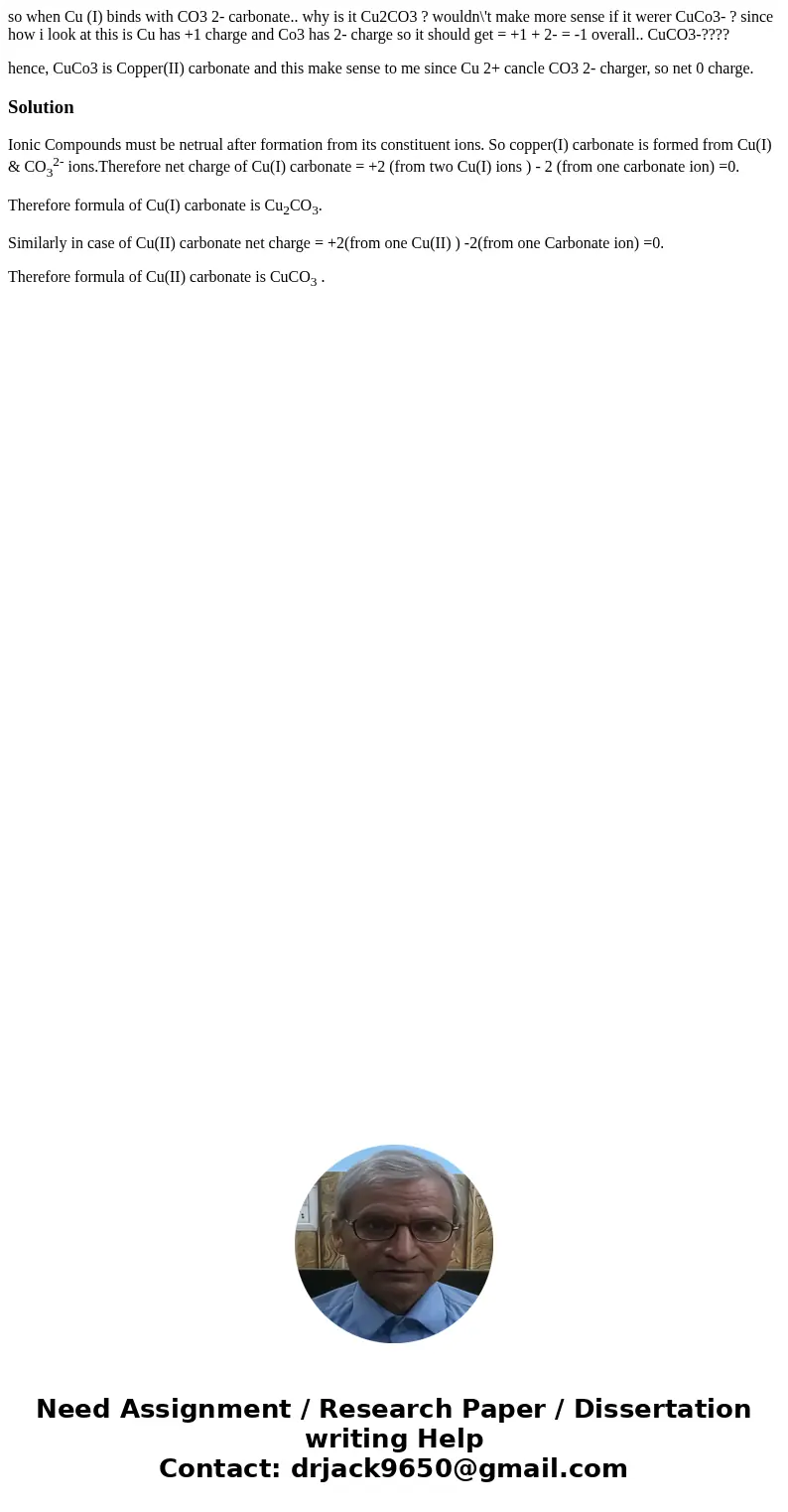so when Cu I binds with CO3 2 carbonate why is it Cu2CO3 wo
so when Cu (I) binds with CO3 2- carbonate.. why is it Cu2CO3 ? wouldn\'t make more sense if it werer CuCo3- ? since how i look at this is Cu has +1 charge and Co3 has 2- charge so it should get = +1 + 2- = -1 overall.. CuCO3-????
hence, CuCo3 is Copper(II) carbonate and this make sense to me since Cu 2+ cancle CO3 2- charger, so net 0 charge.
Solution
Ionic Compounds must be netrual after formation from its constituent ions. So copper(I) carbonate is formed from Cu(I) & CO32- ions.Therefore net charge of Cu(I) carbonate = +2 (from two Cu(I) ions ) - 2 (from one carbonate ion) =0.
Therefore formula of Cu(I) carbonate is Cu2CO3.
Similarly in case of Cu(II) carbonate net charge = +2(from one Cu(II) ) -2(from one Carbonate ion) =0.
Therefore formula of Cu(II) carbonate is CuCO3 .

 Homework Sourse
Homework Sourse